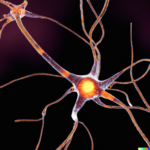Adjusting care routines as a patient’s memory and abilities change requires a thoughtful and flexible approach. This process involves understanding the patient’s evolving needs and implementing strategies that support their well-being and independence.
## Understanding the Changes
As individuals age or experience cognitive decline, such as in dementia, their memory and abilities can change significantly. These changes can affect their daily routines, social interactions, and overall quality of life. It’s essential to recognize these changes early on to provide the most effective care.
## Strategies for Adjusting Care Routines
### Use of Visual Aids
Visual aids like schedules and reminders can be incredibly helpful. They provide a clear and consistent structure for the day, helping patients anticipate and prepare for upcoming events. This can reduce anxiety and confusion, especially in individuals with memory issues.
### Gradual Changes
Introducing changes gradually is crucial. Sudden changes can be overwhelming and stressful. By making small adjustments over time, patients can adapt more easily to new routines. For example, if a patient is used to having breakfast at 8 AM, changing this to 7:30 AM gradually over a few days can help them adjust without feeling disoriented.
### Emotional Support
Emotional validation is vital when adjusting care routines. Acknowledge the patient’s feelings and concerns, and reassure them that these changes are intended to support their well-being. This emotional support can help reduce resistance to new routines.
### Encourage Independence
While it’s important to provide support, it’s equally important to encourage patients to maintain as much independence as possible. This can be achieved by allowing them to make simple decisions, such as choosing what to wear or what activity to engage in.
### Personalized Care
Each patient is unique, with their own preferences and needs. Personalizing care routines to fit these individual needs can significantly improve their quality of life. For instance, if a patient enjoys music, incorporating music sessions into their routine can be highly beneficial.
### Technology and Assistive Devices
Technology can play a significant role in supporting patients with changing abilities. Assistive devices, such as reminder systems or wearable devices, can help them stay on track with their routines. However, it’s important to ensure that these devices are user-friendly and do not cause additional stress or confusion.
## Conclusion
Adjusting care routines as a patient’s memory and abilities change requires patience, understanding, and flexibility. By using visual aids, introducing gradual changes, providing emotional support, encouraging independence, personalizing care, and leveraging technology, caregivers can create a supportive environment that enhances the patient’s quality of life. This approach not only helps manage the challenges of cognitive decline but also fosters a sense of dignity and well-being for the patient.



